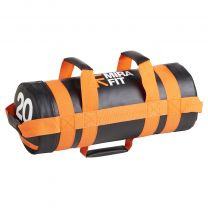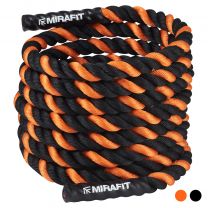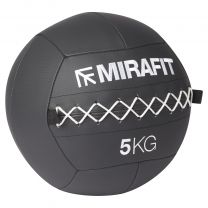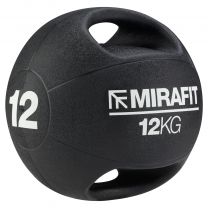Strength Training For Rugby With Vicky Fleetwood
Strength Training For Rugby With Vicky Fleetwood

There’s no doubt about it, rugby is an incredibly demanding sport.
And it’s not just about the strength, power and aerobic capacity required to play, but also the physical impact that makes it so punishing.
That’s why it’s so important rugby players supplement their training on the pitch with strength training at the gym. Weight training is vital for building the required level of strength and muscle mass needed to play. And conditioning work is fundamental for contact and collision preparation.
How you train and what you focus on also depends on what position you play as well as where you are in the season.
But there are always going to be a few key exercises rugby players can do throughout the year, to help them stay at the top of their game.
We spoke to professional rugby player and world cup winner, Vicky Fleetwood, to find out more about what it takes to compete at her level.
When did you first start playing rugby?
I started playing rugby when I was 15. Our school was really big on the sport and they offered it as an extracurricular activity. There were 50 girls who took it up in total.
I then started working as a personal trainer after I went to uni. I’ve always been involved in athletics from an early age, so it all came quite naturally to me.
I loved being in the gym and felt at home. And the more I went to the gym, the more I was motivated.
Playing rugby really fit in well with being a personal trainer and I still love working with other people to help them become the best that they can be.
Do you get extra coaching in the gym or do you rely on your own knowledge to train?

Now, I rely on my own knowledge and work alongside our strength and conditioning coach to tailor it to my needs. I know my body better than someone I don’t see that regularly. I’ve been training with weights for 13 years and I understand what my body needs.
I can see, however, that training with a coach can be really useful – especially for some of the younger players. We have coaches at our club so you can go along if you feel the need to on top of training.
I’m quite happy training on my own though. We’re provided with programmes that fit in with the season, and those are developed off the back of our fitness tests.
Would you be able to play rugby without the gym?
Definitely not! The athleticism of players is constantly improving and they’re always getting stronger and quicker.
You also need to have a strong core and neck to protect you during collisions.
What are the key muscles that you need to focus on?
Push press is a good transferable exercise to lifting in the line out. I use a prowler to replicate scrummaging but overall strength is really important. So, all the core lifts such as squat, deadlift and bench press are all usually incorporated in some way.
You also need to be strong so that you can deal with collisions and really train up your hamstrings, quads and knees so that you can sidestep and change velocity.
What are some of the key exercises you do to work on these muscles?
I always like to squat and I like cleans because they keep you nice and powerful.
I always do a push and a pull, so probably bench press and a pull up. It depends on the individual though.
I do a lot of work on my core and I have to work on my hamstrings as well.
For my neck, I usually try and train in a scrummaging position and work with a swiss ball – stuff like that.
Do you focus on both muscle building and strength training work? What are your reps and sets like?
It changes throughout the season and that sort of thing is also dependent on what exercise it is.
For the bigger lifts, I go for 3-8 reps. And for accessory lifts, I’m working on a capacity of 8-20 reps.
Sometimes I go up to 30 for things like hamstring bridges.
You’re also exceptionally fast – what’s your secret?
I’ve always had fast-twitch fibres. I used to be a sprinter so I’ve actually had to work really hard on the conditioning side of things - but I like to think that's also a strength of mine too.
And I really enjoy plyometric and sprint sessions so I always like to have some of this within my training.
What’s your favourite bit of equipment at the gym – that you get the most out of?
It’s got to be the barbell. They’re so versatile and you can just do so many different exercises with them.
I also like plyo jump boxes and hurdles. It’s good to keep mixing it up.
Rugby aside, are there any other types of exercises that you enjoy or that just help you stay fit?
I do like Yoga but I don’t usually have the time to go to a studio and do it.
Instead, I just work on my flexibility and make sure I am doing those sorts of exercises. Even in my warm up, I put a lot of stretching in there to help me stay flexible, especially around my hips and hamstrings.
Top 10 strengthening exercises for rugby
Below are some fantastic strengthening exercises you can do all year round, to supplement your training on the rugby pitch.
1 - Bench press
Bench presses mainly work your chest, shoulders and triceps and are great for building muscle as well as power.
Good for
• Fending
• Getting back on your feet
• Explosive power
2 - Deadlifts
Deadlifts target your hamstrings, glutes and lower back. They will also help you develop your speed and strength.
Good for
• Sprints
• Power
• Grip strength
• Global strength
3 - Power cleans
Cleans are a compound exercise and work almost every muscle in your body, which makes them a vital component for rugby training. If you’re not comfortable using a barbell, you can use a Sandbag or Sandfilled Power Bag instead.
Good for
• Power in collisions
• Overall strength
4 - Squats
Squats are one of your heaviest lifts and will build up your posterior chain as well as your quads and core.
Good for
• Speed
• Power going into a tackle
• Change of direction
• Strength in collisions
• Change of velocity
5 - Push press
Having strong shoulders is vital for playing rugby so working in some push presses is going to be key.
Good for
• Shoulder strength
• Particularly good for forwards in line-outs
6 - Hanging knee raises
These strengthen your lower core and will help you improve your grip strength at the same time.
Good for
• Collisions
• Scrum work
7 - Russian twists with landmine
Landmines allow you to work your core while lifting heavy. You can also use a weight plate or a medicine ball.
Good for
• Collisions
• Scrum work
• Rucks
8 - Prone dumbbell row
These exercises will help you build your back so that you have more push power.
Good for
• Scrums
• Tackling
9 - Alternating rotational throws
These are great for building up your throwing power as well as your core. And by alternating your stance, you can work each side in turn.
Good for
• Passes
• Explosive power
10 - Overhead slams
Another great one for putting power into your throws, these work your triceps as well as your shoulders and core.
Good for
• Explosive power
• Throws
• Passes
If you’d like to read more on strength training, check out our blog on 12 reasons you're not getting stronger.
For more content, follow us on Instagram, YouTube, TikTok, and on our official Mirafit Facebook page.
Thank you to @jonpaynephoto for the images of Vicky Fleetwood.
Enter your email to signup to our newsletter








